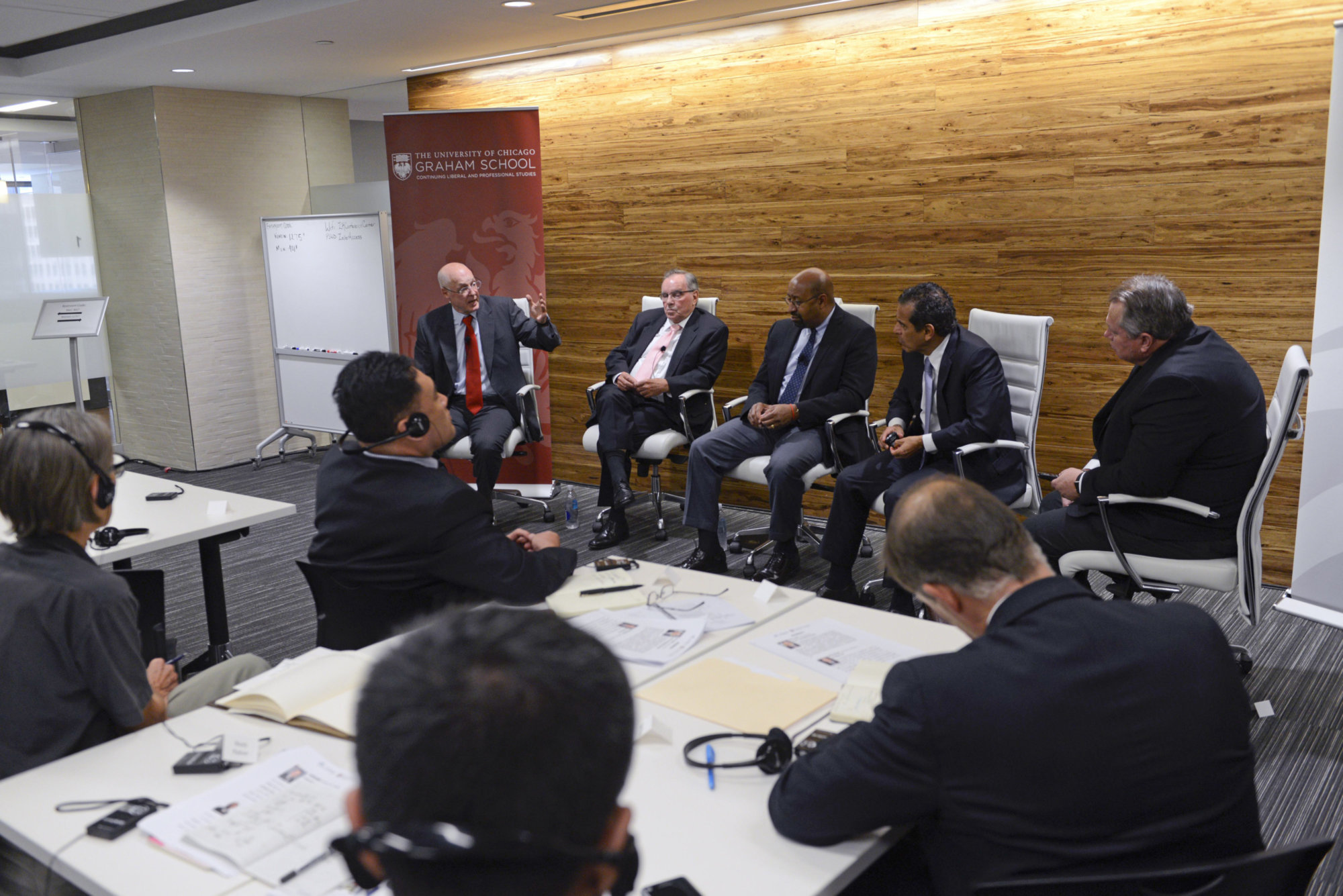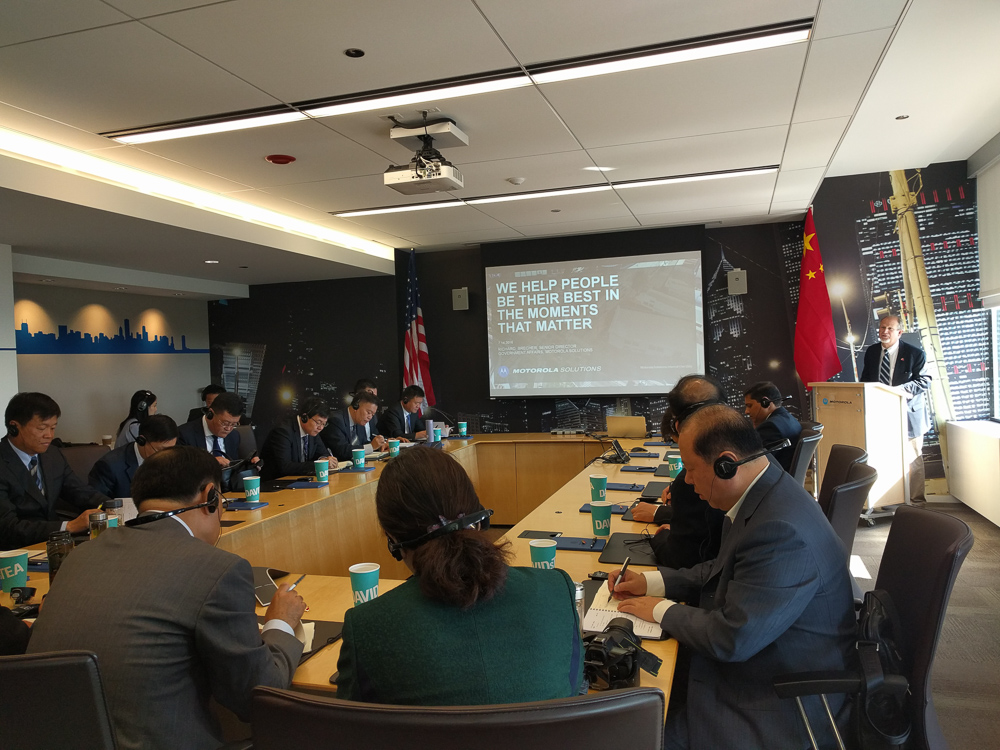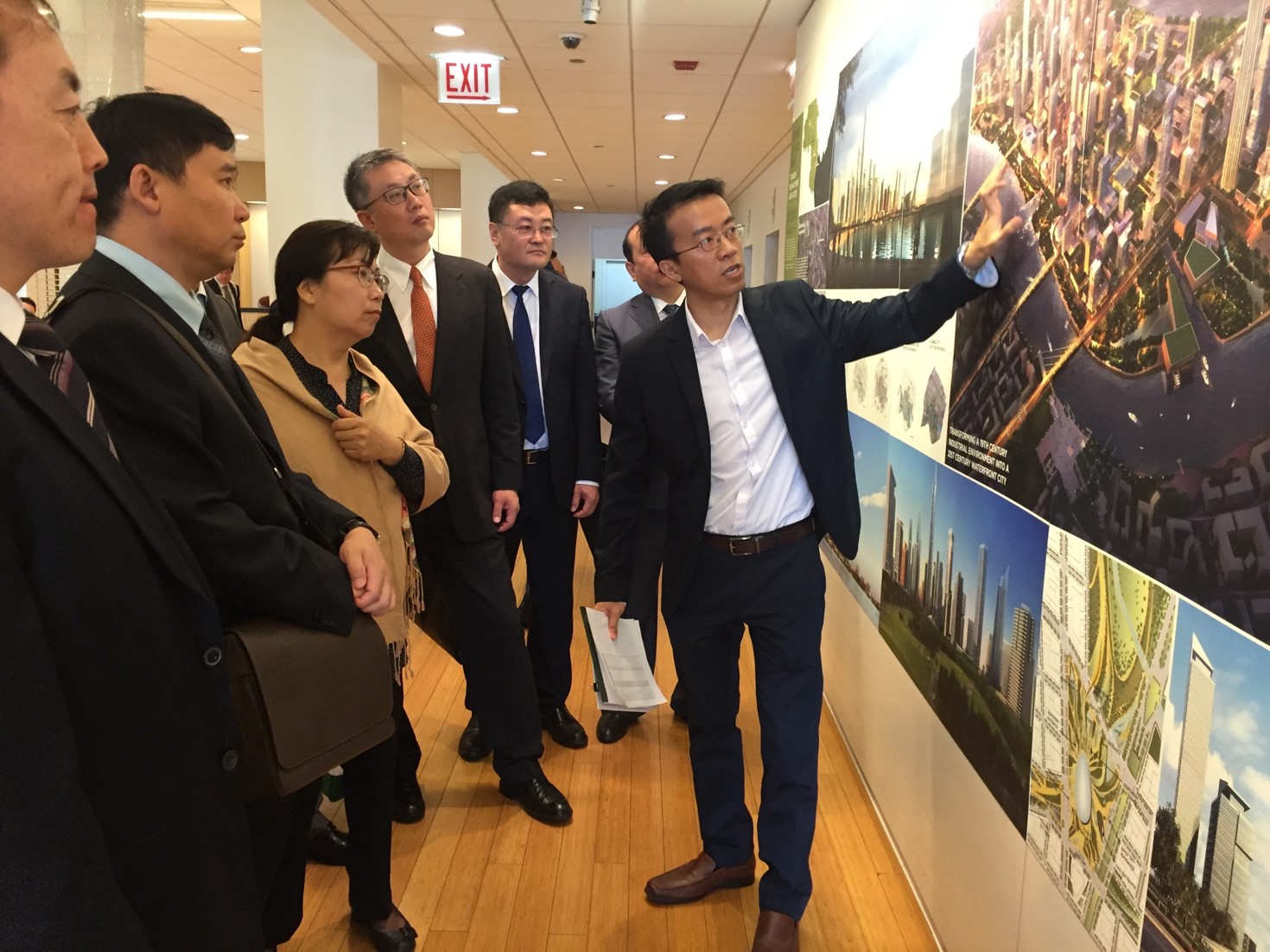
On July 10, 21 Chinese officials responsible for running the mega-city of Tianjin touched down in Chicago. Over the course of the next two weeks, the mayors attended policy panels and seminars covering lessons in sustainable urbanization. After a prior weeklong educational session at Tsinghua University in Beijing, the mayors spent nine days in Chicago and three more in Los Angeles for another take on environmentally-friendly policy. The delegation was in the United States as part of the Paulson Institute’s annual Mayors Training Program.
The program, now in its fourth year, aims to make Chinese cities more sustainable by providing China’s mayors with training from experts in America’s largest cities. The program seeks to complement one of China’s key development plans: urbanization is at the core of China’s move to a more sustainable economic model, and some 100 million people will move to China’s cities in the next several years. The program is held in collaboration with the Chinese Association of Mayors (CAM), Tsinghua University, and the Graham School of Continuing Liberal and Professional Studies at the University of Chicago. Support comes from Hyatt Hotels Corp., Energy Foundation (EF) China, Motorola Solutions, John D. and Catherine T. MacArthur Foundation, Wanxiang America, and Skidmore, Owings, and Merrill.
In Chicago, the mayors heard from experts regarding architecture, infrastructure, energy and waste disposal systems, urban planning, and parks. Highlights included hearing from celebrated architect Jeanne Gang, Chicago Chief Sustainability Officer Chris Wheat, and a panel of the former mayors of Chicago, Los Angeles, Philadelphia, and Mesa, AZ. The Chicago sessions also included site visits to parts of the city that had been improved by environmentally friendly policy. On one morning, the mayors visited the downtown headquarters of architecture firm Skidmore, Owings, and Merrill, which featured large, intricate models of buildings the firm had designed around the world. Standing among the models was a representation of the Pearl River Tower in Guangzhou, which has been hailed globally as a leading example of sustainable architecture.

The mayors then headed to Los Angeles, where they visited the Port of Los Angeles and heard from the Port’s environmental manager, Chris Cannon. As mayors of Tianjin, also a major trading and shipping port city, the visit to the Port was particularly relevant to their own experience in China. While in California, the mayors also learned about the recent revitalization of downtown Los Angeles and the efforts that were made to clean up the Los Angeles River. During Q&A sessions following each panel, the mayors expressed gratitude and often remarked that U.S. cities had been through a cycle of dirty industrialization and cleanup that is now playing out in cities across China.
The feedback from the Tianjin Delegation, CAM, and the University of Chicago so far has been extremely positive. The delegation felt that the program provided them with the opportunity to both improve their theoretical knowledge of urban sustainability issues and see successful projects on the ground. These experiences are invaluable for giving officials the chance to understand models for urban growth outside of China. This year’s Mayors Panel and Bicycle Ride Tour were the highest-rated events of the whole program. In the Mayors Panel, the delegation was thrilled to be able to hear firsthand insights from four experienced US Mayors, and the Ride Tour gave an opportunity for the Chinese Mayors to better understand low carbon transportation solutions as well as sustainable urban planning. Sponsors Hyatt, EF, Motorola and the MacArthur Foundation shared their satisfaction with us as well.

Responding to the mayors at the closing ceremony in Chicago, Graham School Dean Mark Nemec cited the University’s motto “crescat scientia; vita excolatur – let knowledge grow from more to more; and so be life enriched,” concluding that the Mayors Training Program allows the University to fulfill this promise by using knowledge and influence to make the world a better, more sustainable place. New lessons in hand, the delegation returned to Tianjin equipped to steer the port city toward a greener future.





